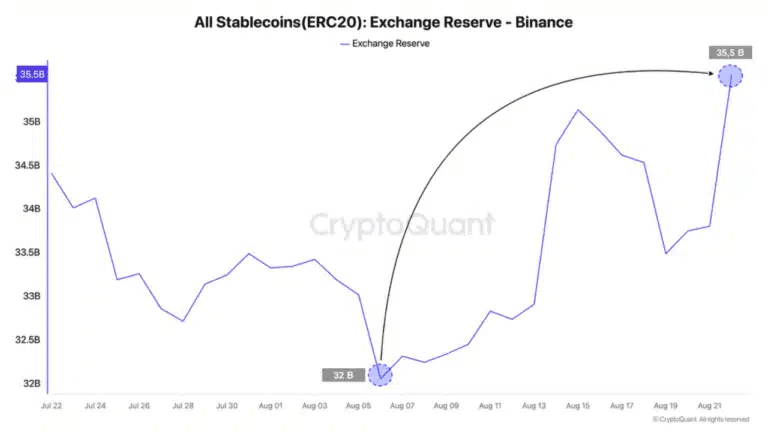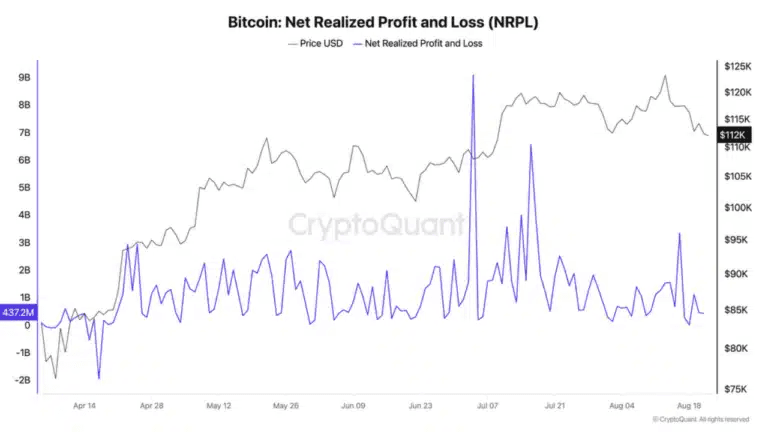Stablecoin reserves on Binance have increased by $3 billion. Meanwhile, Asia is taking bold steps as the region moves forward in the cryptocurrency space!
Stablecoins have made headlines once again.
Binance's reserves have increased by $3 billion in just two weeks, so new money is flowing into the market instead of investors pulling it out.
At the same time, Asia is reshaping its role in the cryptocurrency space: China is exploring a yuan-backed stablecoin, while Japan is proposing significant changes that could redefine its digital asset landscape.
Here's what you need to know.
The rise of stablecoins brings new liquidity to Binance
Stablecoin flows often act as a window into market behavior, and the latest Binance figures show a clear shift.
Stablecoins
Source: CryptoQuant
Over the past two weeks, ERC-20 stablecoin reserves on the exchange jumped from $32 billion to $35.5 billion, an increase of $3 billion. New capital has entered the market, rather than investors pulling their money out.
Stablecoins
Source: CryptoQuant
In support of this view, the net realized profit and loss of Bitcoin [BTC] (NRPL) has remained muted, indicating limited profit-taking activity.
A large portion of this liquidity has been stored on the Binance platform, awaiting re-entry into the cryptocurrency markets; a potential sign of investor confidence.
RLUSD is heading to Japan!
In other news, Ripple is preparing to launch its dollar-backed stablecoin, RLUSD, in Japan by early 2026 through a partnership with SBI VC, a subsidiary of SBI Holdings.
This move follows the State Bank of India's (SBI) licensing as the first company in Japan to obtain a license as an electronic payment service provider. Ripple stated that the launch of the service goes beyond technology, aiming to build a 'reliable and compliant financial future.'
This launch will make stablecoins more reliable and convenient for Japanese users, thus expanding the market.
Asia is on the move!
With the growing popularity of the RLUSD launch in Japan, the country is gearing up for one of the boldest cryptocurrency reforms yet!
The Financial Services Agency (FSA) is proposing a shift to a flat 20% tax on digital assets - matching stocks - and reclassifying cryptocurrencies as financial products.
These changes could pave the way for cryptocurrency ETFs, providing institutions and retail investors with a more organized and accessible entry point.
For Japan, this move would ease the tax burden, enhance adoption, and bring cryptocurrencies closer to mainstream finance.
With added momentum, China is also considering a yuan-backed stablecoin to challenge the dominance of dollar-linked currencies; thus, the Asian region is quietly positioning itself in the global digital currency race.
